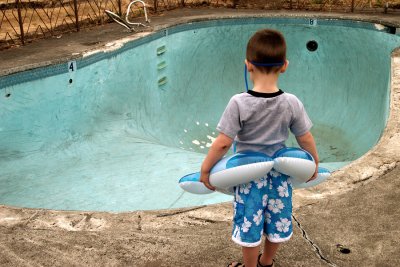Causes of Water Loss in Your Pool

Why Is My Pool Leaking Water?
We all love enjoying our pools. But along with all the maintenance we conduct, some strange symptoms can occur here and there. Have you noticed your pool is losing water frequently? Usually, pools lose water via evaporation or a leak. Evaporation occurs naturally in any body of water but can happen more rapidly on hot, humid days. On the other hand, leaks are far more serious. If you have a leak in your pool, it’s important to call the team at Millennium Pools & Spas to help. We have over 35 years of combined experience serving Virginia and Maryland pool owners. If you have a residential or commercial pool and you notice your water levels lowering significantly, trust the professionals. We’ll show you what to look out for, what can cause leaks and evaporation, and when it’s time to schedule an appointment with our team.
What Is Causing My Pool to Leak?
Even though pools are designed to be completely water-tight, there are many issues that can cause leaks. Some of the most common causes of pool leaks include:
- Seals deteriorating due to lacking routine maintenance
- Plumbing fittings breaking
- Accessories, such as light fixtures, cracking or breaking
- Cracked concrete
It’s important to understand what is causing your leak quickly to put a stop to it. Failing to address a leak can be harmful to the environment as well as cost you in chemicals, water bills, and more. Additionally, not addressing a pool leak can cause worse, more expensive problems as the leak gets worse over time.
Evaporation
Sometimes, there isn’t a significant leak, but evaporation is causing your water levels to drop. In the summer, with higher temperatures, humidity, and winds, your pool will naturally evaporate quicker. If your pool does not have an enclosure or tree cover, it will also evaporate quicker than those with shade and protection, as your pool is more exposed to the elements for longer periods of time. If you notice your pool losing more water in the spring and fall, it may be cause for concern. Your pool will naturally lose water over time. This is normal. If your residential pool doesn’t have a cover, you can lose up to a quarter-inch of water per day during hotter months in the summer. Enclosures and pool covers can slow this down. Additionally, heated pools and water features, such as fountains, can cause evaporation quicker.
Signs of Pool Leaks
There are several signs that can indicate your pool may be leaking.
Excessive Moisture
Have you noticed wet or particularly soft spots in the grass around your pool and equipment pad? This could be a sign of water leaking at seams, hoses, or equipment.
Cracked Concrete
Carefully inspect the concrete or tiles around your pool. A leak that occurs below the pool’s surface can shift the ground around your pool, causing cracks.
Improper Chemical Balance
When your pool leaks, the chemicals in your pool leave with it. If you notice a strange imbalance in your pool’s chemicals without any other issues arising, you may have a leak.
How Do I Test for Leaks?
There are many different ways to test for leaks before you call us. The bucket test can help you determine that you do have a leak, while a dye test can help you find the location of said leak. We can help you conduct these tests as well or walk you through how to perform them.
Contact Us Today
If you think you’re in need of pool leak detection throughout Virginia and Maryland, contact the team at Millennium Pools & Spas. There could be a few different reasons for water loss in your pool. If you’re noticing your pool slowly or quickly losing water, contact your pool maintenance company for a more detailed diagnosis of the possible problem. We’re happy to schedule an inspection and quickly and accurately diagnose your leak and create a plan to fix it.


